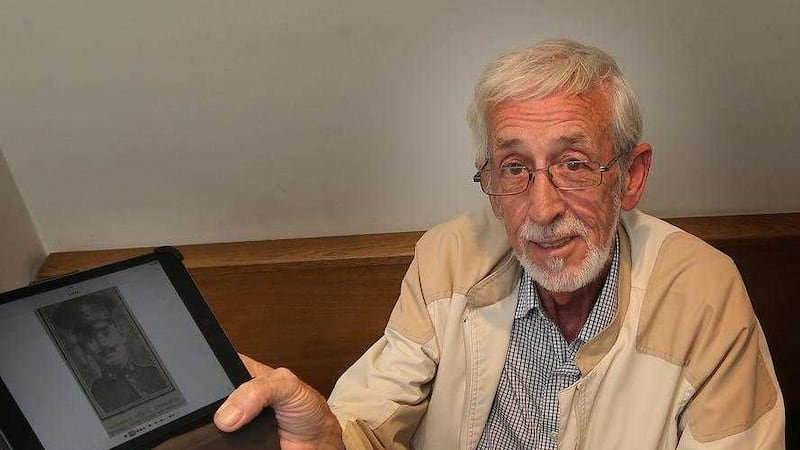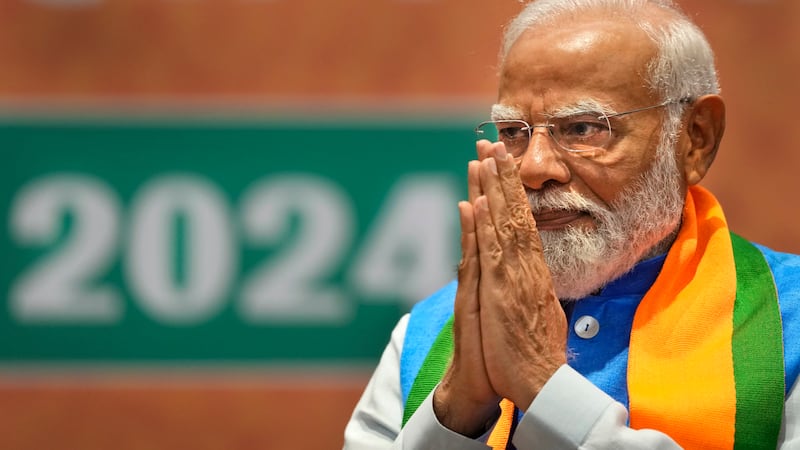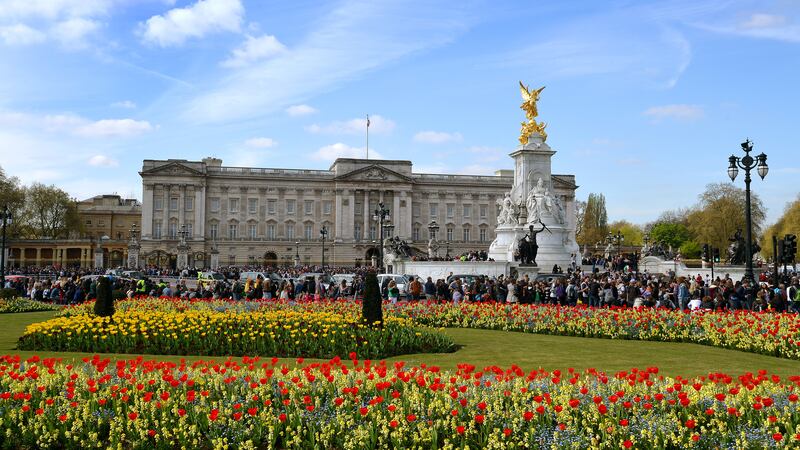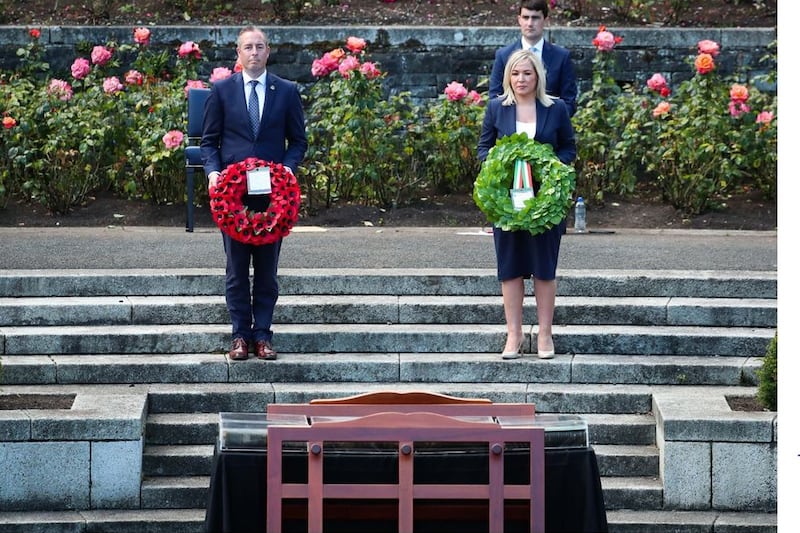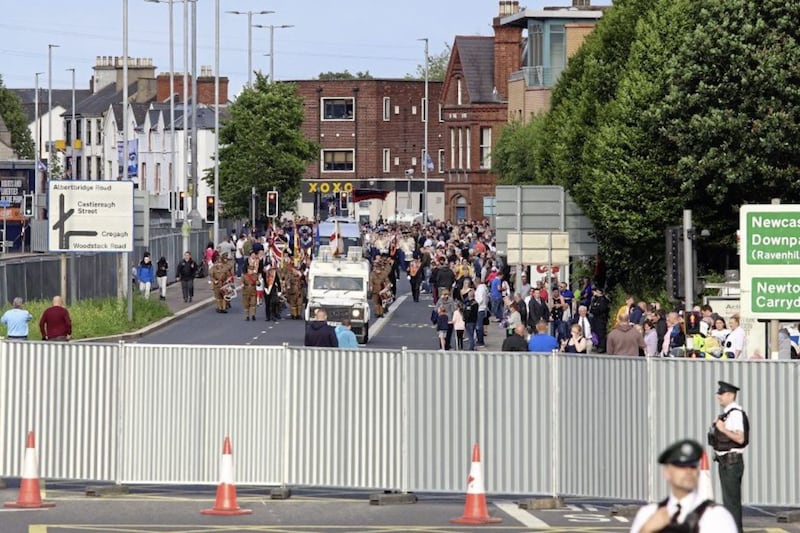FROM west Belfast to the Western Front, it was not unusual for young Catholic men from entire streets of the city to enlist and join the front line during the Great War.
Almost 1,000 men from the west of the city joined the 6th Connaught Rangers regiment of the British Army at the beginning of World War One.
While the vast majority came from the lower Falls area and were members of the Irish National Volunteers, some also hailed from the Carrick Hill and Markets areas.
Hailing from a nationalist background, these men enlisted to fight for Britain at the outbreak of the First World War in August 1914 - persuaded by the promise of Home Rule.
Most joined the Connaught Rangers regiment, perceived to be less 'unionist' than other regiments.
But almost 500 members of the regiment were killed, while hundreds more were wounded during the Great War.
Among those killed were a number of people from the Getty Street area, just off the Falls Road.
An anniversary notice is placed in The Irish News every year to remember the sheer scale of loss of life from one west Belfast street.
The notice lists eight people from the area who died during the war, many who joined the Connaught Rangers and were perhaps transferred into other regiments.
Mill worker Charles Doherty was among those, dying in December 1915 in the Balkans as he served with the 6th Battalion The Connaught Rangers and the Battalion of the Royal Dublin Fusiliers.
His brother-in-law John Hamilton, a tobacco pipe-maker, and James Quinn both served with the 7th Battalion Leinster Regiment, dying a month apart in Belgium at the start of 1917.
Cabinet maker Daniel Donnelly was killed in France in November 1915 serving with the 1st Battalion, Royal Irish Fusiliers, while Patrick Carson, just 18, died in December 1915 in the Balkans serving with the 6th Battalian Royal Dublin Fusiliers.
Patrick White was killed in France in April 1916, serving with the 2nd Battalion Royal Irish Rifles.
Mill worker William Ponise died in August 1917 serving with the Royal Inniskilling Fusilliers and Charles O'Hara was killed in battle in Egypt in November 1917 as he served with the 2nd Battalion Royal Irish Fusiliers.
For those who made it home from battle, they returned to a changed country following the Easter Rising of 1916.
They had enlisted to fight for the British Empire in the hope of showing Ireland could be trusted with Home Rule.
But on their return, far from finding a country ruled by a 32-county parliament, many were ostracised or remained silent about their experiences and subsequently supported the nationalist/republican cause.
The 6th Connaught Rangers Research Group, based in west Belfast, has carried out extensive work on the many nationalists who went to war in Europe.
Watch: A nationalist's new perspective
The group, made up of descendants of the regiment's soldiers, has undertaken vast research to build up a picture of those who sacrificed their lives.
After publishing a book based on their research, the group has joined forced with the Unionist Centenary Committee to bring an exhibition of photographs, letters, documents, medals and memorabilia to Belfast.
The 'West Belfast to Western Front' exhibition will tell the "untold story of how Belfast's unionists and nationalists put aside their Home Rule differences and fought together as one during The Great War 1914-18".
Spokesman Cathal Donaghy, whose family members left west Belfast to fight in World War One, including two uncles killed in action, said the exhibition looks at military, social and political history.
"The exhibition tells the many family stories, like my own," he said.
"For my grandfather and uncles, they were all Irish volunteers at the time of the Home Rule crisis and were encouraged to join the British Army with promises from the British government, which were later reneged upon.
"There was a lot of ill feeling and this made it difficult for people to talk about their war experience as British soldiers, it was kept secret.
"But our research has allowed so many people to open up about their family members who were involved."
The exhibition will be at Féile an Phobail at the Farset International Hostel from August 10-12.
